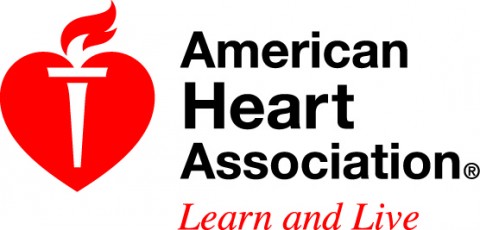Heat is hard on the heart; take precautions and stay healthy
 Nashville, TN – The calendar says it’s still spring, but the extreme temperatures we’re about to feel this week have moved this item to the top of the weekend agenda: preventing heat exhaustion and heat stroke, which can have serious effects on health.
Nashville, TN – The calendar says it’s still spring, but the extreme temperatures we’re about to feel this week have moved this item to the top of the weekend agenda: preventing heat exhaustion and heat stroke, which can have serious effects on health.
Here’s what the American Heart Association wants you to know, so you can beat the heat:
How does hot weather affect the heart?
Extremely hot weather causes dehydration, heat exhaustion and heat stroke. These risks increase when the humidity is above 70 percent and the temperature is above 70 degrees F. Heat and humidity interfere with the body’s natural cooling process.
Physical activity outside in hot and humid conditions can be hard on your heart.
This is true even for athletes who haven’t yet adapted to the heat. The problem is made worse because the heart is trying to deliver blood and oxygen to your working muscles while your body is trying to cool off by sweating. If you sweat too much, you lose fluid. This decreases your total blood volume.
That means your heart has to pump even harder to get the smaller volume of blood to your working muscles, skin and the other body parts. When you lose too much fluid, your body temperature rises and your nervous system doesn’t work properly. Extreme fluid loss can lead to brain and heart damage.
A good way to monitor your body fluid level is to weigh every morning after using the bathroom. If you weigh two pounds less than normal in the morning, you’re probably dehydrated and need to drink more water before doing any vigorous physical activity. (You may have lost weight as water but not as fat.)
What precautions should be taken?
- Dress for the heat. Wear very lightweight, light-colored clothing in breathable fabrics such as cotton, or a newer fabric that repels sweat. Add a hat and/or sunglasses.
- Choose the early morning or late evening to be outdoors.
- Before you get started, apply a water-resistant sunscreen with at least SPF 30, and reapply it every two hours.
- Drink up. Stay hydrated by drinking a few cups of water before, during and after your exercise. Drink even if you don’t feel thirsty. Avoid caffeinated or alcoholic beverages.
- Take regular breaks. Find some shade or a cool place, stop for a few minutes, hydrate and start again.
- If you are thirsty, you may already be dehydrated. Stop and hydrate immediately.
- Take breaks as needed and get out of the sun if possible.
- Certain heart medications like beta blockers, ace receptor blockers, ace inhibitors, calcium channel blockers and diuretics (which deplete the body of sodium) can exaggerate the body’s response to heat. Always check with your healthcare professional.
Know the symptoms of heat exhaustion and heat stroke. If any symptoms appear, stop exercising and cool down immediately by dousing yourself with cold water. You may need to get medical attention. Heat exhaustion can progress quickly to heat stroke, which can kill you.
What are the symptoms of heat exhaustion?
- heavy sweating
- cold, clammy skin
- dizziness or fainting (syncope)
- a weak and rapid pulse
- muscle cramps
- fast, shallow breathing
- nausea, vomiting or both
What are the symptoms of heat stroke?
- warm, dry skin with no sweating
- strong and rapid pulse
- confusion and/or unconsciousness
- high fever
- throbbing headaches
- nausea, vomiting or both
If you experience these symptoms, seek medical attention right away. By taking precautions, everyone can get through the heat in good shape. For more information, visit www.heart.org.
American Heart Association
The American Heart Association is devoted to saving people from heart disease and stroke – America’s No. 1 and No. 4 killers. We team with millions of volunteers to fund innovative research, fight for stronger public health policies, and provide lifesaving tools and information to prevent and treat these diseases.
The American Heart Association is the nation’s oldest and largest voluntary organization dedicated to fighting heart disease and stroke. To learn more or to get involved, call 1.800.AHA.USA1, visit www.heart.org.


